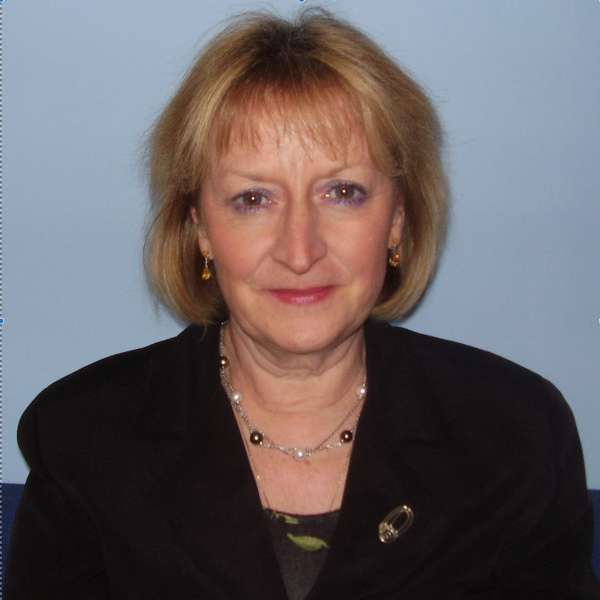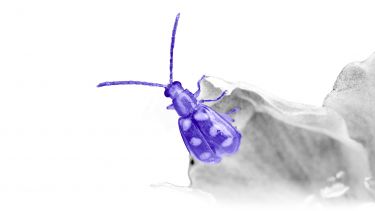A turning point for the treatment of motor neurone disease
Banner hidden
A turning point for the treatment of motor neurone disease.
This is the future.
And it will be Sheffield made.
And it will be Sheffield made.
A turning point for the treatment of motor neurone disease
We led a Phase 3 clinical trial of an investigational drug for a type of motor neurone disease. The results of the trial showed significant improvements in patients’ symptoms, with one patient in a wheelchair later able to walk without sticks.
Motor neurone disease (MND) affects around 5,000 people in the UK every year. There is currently no cure.
An international clinical trial led by Professor Dame Pamela J Shaw in the UK has been shown to slow down progression of a type of motor neurone disease and could be a turning point for patient care.
The results of a Phase 3 clinical trial showed significant improvements in patients’ symptoms after 12 months, with one patient in a wheelchair at the start of the trial now able to walk without sticks. While the treatment only applies to patients with a subtype of MND caused by a faulty SOD1 gene (approximately 2 per cent of all MND patients) this work has the potential to change the future of trials for all MND patients.
Understanding MND
MND, also known as amyotrophic lateral sclerosis (ALS), is a fatal disease that affects the motor nerves in the brain and spinal cord. Most patients are in their 60s and 70s, but it can affect adults of all ages.
The progressive disease causes the nerves that take signals from the brain to the muscles to stop working. This leads to muscle weakness, stiffness and paralysis that gets worse over time, impacting the patient’s ability to walk, talk, eat and breathe. Few patients survive beyond five years after being diagnosed, with current treatments only marginally increasing life expectancy.
MND is a group of diseases with multiple causes, rather than a single root cause, which is why it is so difficult to treat.
Phase 3 clinical trial
Researchers from the Sheffield Institute for Translational Neuroscience (SITraN), the Neuroscience Institute and NIHR Sheffield Biomedical Research Centre (BRC), found that patients with a faulty SOD1 gene reported better mobility and lung function a year after taking the investigational drug tofersen, with some patients experiencing a slower progression of symptoms.
108 MND patients known to have the faulty SOD1 gene took part in the pioneering Phase 3 clinical trial sponsored by the biotechnology company Biogen Inc.
The treatment required monthly lumbar punctures, in which a needle was passed between the bones in the spine to put the drug directly into the spinal fluid.
After six months of treatment, those receiving the drug had lower levels of the harmful SOD1 protein and neurofilament markers of neuronal injury but there was only a trend, rather than a statistically significant physical improvement. However, after the trial was extended to 52 weeks slower clinical disease progression could be measured and at this stage some patients reported improvements in motor and lung function.
Results of the trial, published in the New England Journal of Medicine, show that tofersen successfully hits the therapeutic target, and may reduce the loss of motor neurones, which may allow them to start regenerating connections with muscles in the body.
Professor Dame Pamela Shaw, Professor of Neurology and Director of SITraN, the NIHR Sheffield BRC and the Neuroscience Institute said: “I have conducted more than 25 MND clinical trials and the tofersen trial is the first trial in which patients have reported an improvement in their motor function.”
Dame Pam added: “What we have found is that we can reduce or slow damage from happening biologically, but it takes more time for the motor neurones to heal and regenerate their connections with the muscles. So, the motor system needs time to heal before we see a physical and clinical change in the patient’s condition.
“Patients with SOD1 mutations are relatively rare, but this trial is going to change the future of MND trials for patients. Not only can we look at other genes which also cause MND, but we now have a biomarker which we can measure to see if a treatment is working. This is going to make trials much more efficient. In future we may be able to tell in three to six months if an experimental therapy is having a positive effect.”
Professor Chris McDermott, Professor of Translational Neurology at SITraN and Co-Author of the study, said: “This is the first time I have been involved in a clinical trial for people living with MND where I have seen real benefits to participants. Although tofersen is a treatment for only two per cent of those living with MND, we have learned much in doing this clinical trial that will help us do smarter and faster clinical trials in the future. The approach used, of reducing proteins harmful in MND, is likely to have wider applications for more common types of MND.”
While the drug is not viewed as a cure, clinicians and scientists hope that the landmark trial is a first step toward a licensed therapy for patients with MND.
Gene therapy at Sheffield
This Phase 3 trial would not have been possible without the groundwork of Professor Mimoun Azzouz, one of the leading experts in the development of gene therapy, to modify genes to treat disease. He provided the first robust proof-of-concept evidence in mouse models of MND that gene silencing using RNA interference knocks down the SOD1 protein, demonstrating the best improvement in survival to date in preclinical models. This inspired pharmaceutical companies to develop similar approaches for first-in-man clinical trials.
In 2018, he and Prof Dame Pamela Shaw led a team at SITraN, funded by UK Research and Innovation (UKRI), that developed SOD1 silencing gene therapy further as a translatable and biomarker supported approach that could be beneficial for MND patients with the faulty SOD1 gene.
In 2020, the encouraging initial results from Phase 1-2 of Biogen’s study using antisense oligonucleotides, led by Prof Dame Pamela Shaw in the UK were published in the New England Journal of Medicine.
Professor Azzouz is now the Director of the newly built Gene Therapy Innovation and Manufacturing Centre (GTIMC) at The University of Sheffield, which is part of the Innovation Hubs for Gene Therapies. The GTIMC will dramatically broaden the scope of gene therapy research in the UK by bringing together partners from the North of England, the Midlands and Wales to advance knowledge on gene therapies.
Living with MND
As well as finding treatments for MND, our researchers find ways to improve the lives of patients living with MND.
Professor Chris McDermott regularly undertakes specialist MND and neuromuscular clinics in Sheffield. As part of his research, he is developing an evidence base for delivering supporting and symptomatic care for patients living with MND.
Professor McDermott led the development of the Head Up collar, in consultation with patients. The collar is now used in at least 100 hospitals around the UK and sold commercially around the world. After trying the collar, more than 80 per cent of patients reported they could eat, drink and read comfortably, knowing that their head and neck were fully supported.
Professor McDermott and his team at SITraN have also worked closely with people with MND, and their families, to design a website to help people make informed decisions about their treatment. The website, mymnd.org.uk, is split into two sets of resources. myTube is aimed at people considering having a feeding tube fitted, and myBreathing is aimed at those considering ventilation and breathing support options.
In November 2021 Professor McDermott was recognised as an outstanding health and care researcher by a National Institute for Health Research (NIHR) Professorship award.
Read more about Professor McDermott’s patient-centred research here: https://www.sheffield.ac.uk/neuroscience-institute/sitran-10-year-anniversary/enhancing-patient-quality-life


Professor Dame Pamela J Shaw
Director of the Sheffield Institute for Translational Neuroscience (SITraN)School of Medicine and Population Health
- Email address
-
pamela.shaw@sheffield.ac.uk
- Telephone
- +44 114 222 2295


Professor Mimoun Azzouz
Chair of Translational NeuroscienceSchool of Medicine and Population Health
- Email address
-
m.azzouz@sheffield.ac.uk
- Telephone
- +44 114 222 2238
Professor Chris McDermott
Professor of Translational NeurologySchool of Medicine and Population Health
- Email address
-
c.j.mcdermott@sheffield.ac.uk
- Telephone
- +44 114 222 2295
Our MND research
The University of Sheffield is internationally renowned for its world-class neurodegenerative research. It is home to The National Institute for Health Research (NIHR) Sheffield Biomedical Research Centre (BRC). The NIHR BRC, in partnership with Sheffield Teaching Hospitals NHS Foundation Trust, is dedicated to improving the treatment and care of people living with a range of conditions, including neurological disorders such as dementia, Parkinson’s disease, motor neurone disease (MND) and stroke.
The University of Sheffield Neuroscience Institute brings together internationally-recognised expertise in medicine, science and engineering to improve the lives of patients and families affected by neurological, sensory and developmental disorders. Over the last 10 years, researchers at SITraN have advanced genetic therapies, giving hope to patients and their families.
Related links
Paper: Trial of Antisense Oligonucleotide Tofersen for SOD1 ALS
Paper: Phase 1–2 Trial of Antisense Oligonucleotide Tofersen for SOD1 ALS
Sheffield Institute for Translational Neuroscience (SITraN)
School of Medicine and Population Health
Read more of our research impact
Written by Alina Moore, Research Communications Coordinator
To stay up to date with the latest world-changing advances from the University of Sheffield, sign up to receive our briefing.








